#Power Struggles
Text

Some important details about how the month of October because this month will be an intense month due to the Eclipse Season plus Pluto will become stationary direct increasing the energy up to 1000!! October will not be an easy month but the universe is pushing us to bring change in order for us to let go of old chapters & welcome new storylines that will unfold over the next 6 months & beyond!!
#astrology#universe#horoscopes#October#eclipse season#intensify#forecast#solar eclipse#lunar eclipse#Pluto direct#mars in Scorpio#mercury in Libra#Venus in Virgo#libra season#scorpio season#power struggles
7 notes
·
View notes
Text
I came home feeling edgy and raw...
Chapter 5 of Lightsabers Are Always Loaded is up. The tribulations of the Smugglers Summit leads Mara to make a decision that might just change the course of her life - or might not. Destiny is fickle that way.
Lightsabers Are Always Loaded - Chaper 5
9 notes
·
View notes
Text
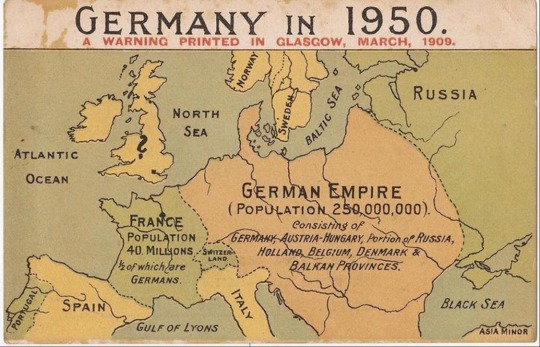
An anticipation of German power in the future as seen in 1909
2 notes
·
View notes
Text
Wild Seed
by Octavia E. Butler
3/5
Wild Seed was gifted to me a couple years ago and I finally read it this year. Despite loving sci-fi written by women, I don't think I would have read it if it hadn't been a gift.
The book is the first of four in the Patternmaster series (though it wasn't the first book in the series written). It follows two people- Anyanwu, a shapeshifter who is essentially immortal because of her healing powers and insane strength. And Doro, an entity that has to wear/take over the bodies of humans as he doesn't have his own. Which then immediately kills the person inside the body. With her incredible strength and power, Anyanwu never feared anyone until she met Doro (who could, if he wanted, take over her body at any time). When Doro finds Anyanwu, he abuses his power by forcing her to join his obsession with producing the specialist, strongest, super-human descendants. The book follows their incredibly abusive relationship over the course of a hundred years.
This book's themes cover power struggles, eugenics, abuse, commentary of New World Slavery, post-colonialism and neo-colonialism. Which is a lot of intense themes to cover.
It was a bizarre read. And it was uncomfortable. And I know it wasn't supposed to be comfortable. Sometimes Butler's literary choices for how to cover these themes were spot on, allowing a depth that was able to carry the range of themes listed above. But sometimes the her choices were too fantastical/absurd/not of our world. I'd find myself uncomfortably distracted by a character morphing into a dolphin and then having sex with another dolphin instead of realizing what the thematic intent was. This might be more of a fault of mine than it is Butler's.
Overall, I've enjoyed Butler's other works more than I enjoyed this one but I still greatly appreciated Wild Seed. I'd only recommend this book to folks who already love most of Butler's other work and/or those who enjoy twisted supernatural fantasy.
StoryGraph Link
#booklr#book review#book recommendation#fiction#octavia butler#wild seed#eugenics#power struggles#abuse#colonialism#sci-fi#science fiction#fantasy
2 notes
·
View notes
Text
In today’s transits, the Moon at 29° Virgo forms a trine with Pluto at 29° Capricorn and an opposition with Neptune at 27° Pisces. Our emotional responses work well with our sense of power utilization but are at odds with our urge to merge and create oneness in a practical, stable but dark/mystical way. Find your way through the darkness today!
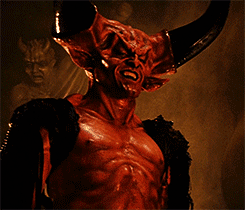
#astrology transits#love#astrology#moon#transits#venus#pisces#capricorn mercury#neptune#pluto#emotional#power struggles#emotions#head#tail#finding#loving#believing#todays transits#tumblrpost#astro observations#astrology notes#love astrology#astro#astro chart#tumblr astrology#sun astrology#astrophotography#astrologer#astro memes
2 notes
·
View notes
Text
"The Timeless Power of Tragedy: A Review of Prometheus Bound and The Seven Against Thebes by Aeschylus"

In the annals of ancient Greek drama, Aeschylus stands as a towering figure, and his works "Prometheus Bound" and "The Seven Against Thebes" exemplify the enduring power and complexity of Greek tragedy. Translated by Theodore Alois Buckley, these timeless masterpieces continue to captivate audiences with their exploration of timeless themes such as fate, justice, and the struggle between gods and mortals.
"Prometheus Bound" opens with the titular character, Prometheus, chained to a rock as punishment for defying Zeus by giving fire to humanity. Buckley's translation vividly captures the agony and defiance of Prometheus as he suffers at the hands of the vengeful gods. Through Prometheus's steadfast resolve and defiance, Aeschylus raises profound questions about the nature of authority, rebellion, and the price of knowledge. The translation preserves the poetic richness and rhetorical power of Aeschylus's language, allowing readers to immerse themselves in the timeless drama of Prometheus's plight.
In contrast, "The Seven Against Thebes" unfolds against the backdrop of the legendary conflict between two brothers, Eteocles and Polynices, for control of the city of Thebes. Buckley's translation masterfully conveys the intensity and urgency of the unfolding tragedy as the two brothers lead their respective armies into battle. Through vivid imagery and stirring dialogue, Aeschylus explores themes of fate, destiny, and the inexorable cycle of violence that plagues humanity. The translation retains the rhythmic cadence and dramatic tension of the original Greek, ensuring that readers are swept up in the epic sweep of the narrative.
What makes Aeschylus's tragedies truly timeless is their ability to transcend the boundaries of time and culture, speaking to universal truths about the human condition. In both "Prometheus Bound" and "The Seven Against Thebes," Aeschylus grapples with questions of morality, justice, and the nature of divine power, offering profound insights into the complexities of the human experience. Buckley's translation admirably captures the depth and nuance of Aeschylus's vision, allowing contemporary readers to appreciate the enduring relevance of these ancient works.
In conclusion, "Prometheus Bound" and "The Seven Against Thebes" stand as enduring monuments to the power of Greek tragedy, and Theodore Alois Buckley's translation ensures that these timeless masterpieces continue to resonate with readers today. Through their exploration of timeless themes and profound insights into the human condition, Aeschylus's tragedies remind us of the enduring power of storytelling to illuminate the darkest corners of the human soul.
"Prometheus Bound" and "The Seven Against Thebes" by Aeschylus is available in Amazon in paperback 10.99$ and hardcover 18.99$ editions.
Number of pages: 138
Language: English
Rating: 10/10
Link of the book!
Review By: King's Cat
#Prometheus Bound#The Seven Against Thebes#Aeschylus#Greek Tragedy#Ancient Drama#Mythology#Mythological Characters#Gods and Mortals#Fate#Destiny#Justice#Rebellion#Defiance#Punishment#Consequences#Humanity#Morality#Ethical Dilemmas#Power Struggles#Conflict#War#Epic Tragedy#Hubris#Divine Retribution#Family Feuds#Sibling Rivalry#Thebes#Chorus#Dramatic Irony#Rhetorical Devices
0 notes
Text
"The Timeless Power of Tragedy: A Review of Prometheus Bound and The Seven Against Thebes by Aeschylus"
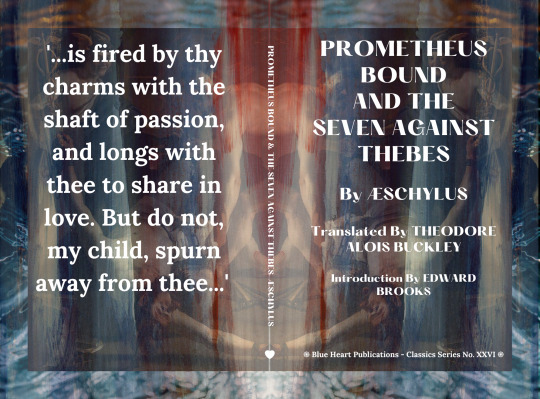
In the annals of ancient Greek drama, Aeschylus stands as a towering figure, and his works "Prometheus Bound" and "The Seven Against Thebes" exemplify the enduring power and complexity of Greek tragedy. Translated by Theodore Alois Buckley, these timeless masterpieces continue to captivate audiences with their exploration of timeless themes such as fate, justice, and the struggle between gods and mortals.
"Prometheus Bound" opens with the titular character, Prometheus, chained to a rock as punishment for defying Zeus by giving fire to humanity. Buckley's translation vividly captures the agony and defiance of Prometheus as he suffers at the hands of the vengeful gods. Through Prometheus's steadfast resolve and defiance, Aeschylus raises profound questions about the nature of authority, rebellion, and the price of knowledge. The translation preserves the poetic richness and rhetorical power of Aeschylus's language, allowing readers to immerse themselves in the timeless drama of Prometheus's plight.
In contrast, "The Seven Against Thebes" unfolds against the backdrop of the legendary conflict between two brothers, Eteocles and Polynices, for control of the city of Thebes. Buckley's translation masterfully conveys the intensity and urgency of the unfolding tragedy as the two brothers lead their respective armies into battle. Through vivid imagery and stirring dialogue, Aeschylus explores themes of fate, destiny, and the inexorable cycle of violence that plagues humanity. The translation retains the rhythmic cadence and dramatic tension of the original Greek, ensuring that readers are swept up in the epic sweep of the narrative.
What makes Aeschylus's tragedies truly timeless is their ability to transcend the boundaries of time and culture, speaking to universal truths about the human condition. In both "Prometheus Bound" and "The Seven Against Thebes," Aeschylus grapples with questions of morality, justice, and the nature of divine power, offering profound insights into the complexities of the human experience. Buckley's translation admirably captures the depth and nuance of Aeschylus's vision, allowing contemporary readers to appreciate the enduring relevance of these ancient works.
In conclusion, "Prometheus Bound" and "The Seven Against Thebes" stand as enduring monuments to the power of Greek tragedy, and Theodore Alois Buckley's translation ensures that these timeless masterpieces continue to resonate with readers today. Through their exploration of timeless themes and profound insights into the human condition, Aeschylus's tragedies remind us of the enduring power of storytelling to illuminate the darkest corners of the human soul.
"Prometheus Bound" and "The Seven Against Thebes" by Aeschylus is available in Amazon in paperback 10.99$ and hardcover 18.99$ editions.
Number of pages: 138
Language: English
Rating: 10/10
Link of the book!
Review By: King's Cat
#Prometheus Bound#The Seven Against Thebes#Aeschylus#Greek Tragedy#Ancient Drama#Mythology#Mythological Characters#Gods and Mortals#Fate#Destiny#Justice#Rebellion#Defiance#Punishment#Consequences#Humanity#Morality#Ethical Dilemmas#Power Struggles#Conflict#War#Epic Tragedy#Hubris#Divine Retribution#Family Feuds#Sibling Rivalry#Thebes#Chorus#Dramatic Irony#Rhetorical Devices
1 note
·
View note
Text












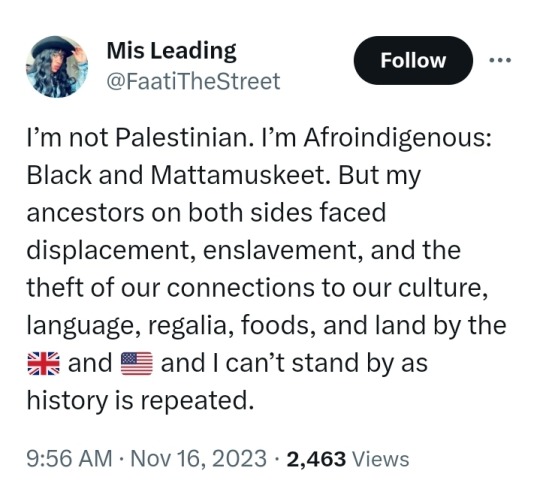
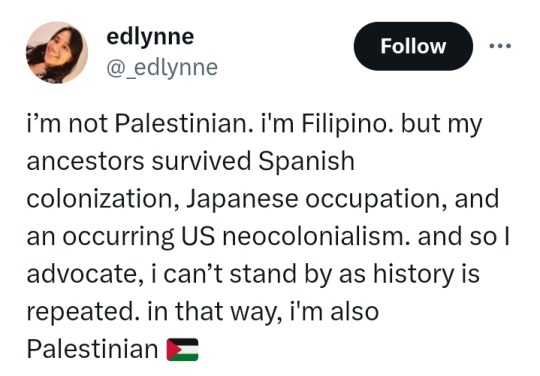

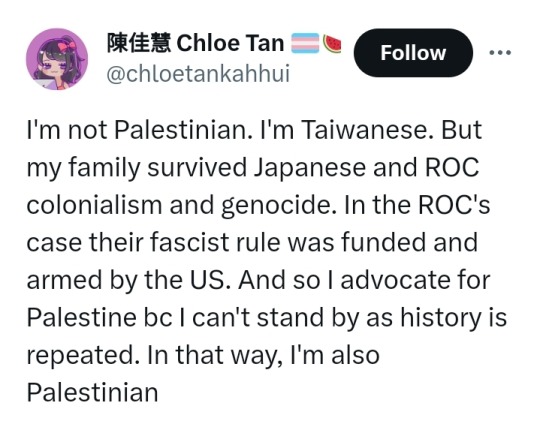
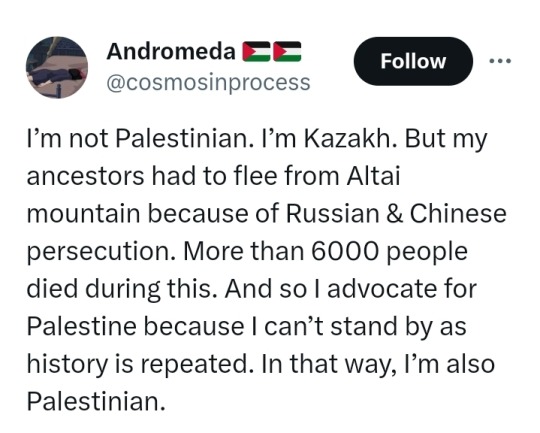











Freedom for Sudan! 🇸🇩
Freedom for The Congo! 🇨🇩
Freedom for Armenia! 🇦🇲
From River To The Sea, Palestine Will Be Free! 🇵🇸🇵🇸🇵🇸
#free palestine#''I am also Palestinian''#from river to the sea palestine will be free#genocide#colonization#imperialism#colonialism#liberation#DRC#congo#Islamphobia#Middle East#Africa#sudan#black power#Armenia#social justice#freedom struggle#holocaust#anti Zionism#racial justice#decolonization#desi tag#Indonesia#Iraq#Iran#Algeria#Latin America#China#Mexico
8K notes
·
View notes
Text
Discover the Enchanting World of Fantasy Palaces with These Must-Read Books
Fantasy novels offer a unique blend of magic and imagination, and when set in palaces, they become even more captivating.
Palaces serve as a backdrop for power struggles, hidden secrets, and magical adventures.
Here are five must-read fantasy novels set in palaces:
1. “A Song of Ice and Fire” series by George R.R. Martin:
The palace of King’s Landing is the political centre of the Seven…

View On WordPress
#A Song of Ice and Fire#Assassin&039;s Apprentice#Fantasy Novels#George R.R. Martin#Gormenghast#hidden secrets#imagination#Katherine Addison#magic#Mervyn Peake#must-read books#palaces#political intrigue#power struggles#Robin Hobb#Sarah J. Maas#The Goblin Emperor#Throne of Glass
1 note
·
View note
Text
The Unending Battle Within: Exploring the Persistence of Internal Struggles
In the depths of our souls, the battle rages on. It is a war fought silently, concealed behind masks of normalcy and the facade of peace. We may have declared an end to the world wars that ravaged nations and tore lives apart, but within us, a different kind of conflict persists, unyielding and relentless.
Greed, that insidious beast, lurks in the shadows of our desires. It whispers in our ears,…

View On WordPress
#Greed#Harmony#internal conflict#peace#Personal Growth#power struggles#societal inequalities#societal progress
0 notes
Photo

~ Blue | White | Gold ~
#chess#games#chinoiserie#king#pawn#perspective#comparison#power#power struggle#blue gold#blue white#blue white gold
5K notes
·
View notes
Text
Do any of you ever wonder if Camp Half-Blood accidentally brought in a demigod of a different pantheon before?
This would be especially hilarious if it happens sometime after The Last Olympian/Heroes of Olympus, where the gods are required to claim their kids quickly.
A whole day passes, and the new demigod needs to sleep in the Hermes Cabin and Percy is furious. Meanwhile, the Greek Gods are pointing at each other and shouting, contacting the most obscure of mini gods. Chaos erupts on Olympus as every deity in Greek Mythology is called upon and interrogated. Hermes hasn't run around so much in centuries.
Hecate sits in silence, fully aware of what's happening, but enjoying the show too much to intervene.
#does anyone want a fanfic of this?#idk if the norse and greek gods are even aware of each other's existence#but it's funnier to imagine that they aren't really#hecate keeps them secret from each other to avoid zeus having a power struggle against odin#or something similar like that#this would be absolutely hilarious#especially if the kid turns out to be a child of a norse sea god#percy jackson#percy jackon and the olympians#magnus chase and the gods of asgard#magnus chase#norse gods#greek gods#pjo#pjo tv show#pjo series#pjo books#heroes of olympus#percy is threatening the gods aka it's wednesday#the poor lost demigod is confused
4K notes
·
View notes
Text
yugioh isn't "good" i.e. its hardly a cowboy bebop or NGE or FLCL or mushishi but if anyone was like "it's bad" i'd be like be quiet. kaiba's about to summon obelisk out of the fucking ground
#millennium world sucks in so many ways. virtual world resists sense-making#battle city suffers from the wildly uneven relative power of the character motivations#the ceremonial duel is thematically indecisive and contradictory#and. of course. JOHJI#but yugioh is great. i fucking love yugioh#intern memo#edit: NGE is on this post because it's a masterpiece and rightfully described as one of the best anime of all time#a gripping and unflinching portrait of depression and alienation and the struggles of intimacy and loneliness
15K notes
·
View notes
Text

#omg kiera no one cares#things i tell myself as i struggle to see move and breathe#i can power through it but god is it exhausting#my memes
2K notes
·
View notes
Text
Dooku didn't leave because of the Jedi.
At least, if you're going by George Lucas' word.
In deleted scenes of Attack of the Clones, when we learn about Dooku's departure and his values, there's no mention of the Jedi or "the Jedi Order as an institution".
And every time Lucas refers to Dooku's disenchantment and reason for falling, he doesn't mention the Jedi.
"When you realize that Dooku is Darth Tyranus, it explains what Darth Sidious did after Darth Maul was killed: he seduced a Jedi who had become disenchanted with the Republic. He preyed on that disenchantment and converted him to the dark side, which is also a setup for what happens with Anakin."
- Mythmaking: Behind the Scenes of Attack of the Clones, 2002
"[Dooku is] one of the few Jedi who became disenchanted with the Republic and left the order and he is leading a separatist movement."
- Vanity Fair, 2002
"I wanted a more sophisticated kind of villain. Dooku’s disenchantment with the corruption in the Empire is actually valid. It’s all valid. So, Chris plays it as, 'Is he really a villain or is he just someone who is disenchanted and trying to make things right?'"
- Starlog Magazine #300, 2002
He probably meant the Republic/Senate in that last one, but you get the point. And you're seeing the pattern, right?
Dooku's problem isn't the Jedi, it's the Republic.
He's become disenchanted with a system that - according to Lucas' prologue in the 2004 book Shatterpoint - worked for 1,000 years...
"For a thousand years, the Old Republic prospered and grew under the wise rule of the Senate and the protection of the venerable Jedi Knights."
... but has been rendered ineffective because of 1) senators becoming corrupt and 2) corporations gaining political power.
"But as often happens when wealth and power grow beyond all reasonable proportion, an evil fueled by greed arose. The massive organs of commerce mushroomed in power, the Senate became corrupt, and an ambitious named Palpatine was voted Supreme Chancellor."
That's the message Dooku runs on, when he rallies the systems to form the Separatist Alliance.
"By promising an alternative to the corruption and greed that was rotting the Republic from within, Dooku was able to persuade thousands of star systems to secede from the Republic."
The Jedi aren't really a factor in his decision to leave.
Why would they be? Their political status isn't very high, they're virtually powerless, as illustrated by the film's narrative and stated repeatedly by Lucas.
On the contrary, as we already established in this post, Lucas full-on confirmed that Dooku actually carries the sympathies of most of the Jedi. Again:
Most Jedi agree with Dooku, ideologically.
As far as the Jedi are concerned, the politicians are effing up the Republic, and it sucks because the Jedi see this but aren't allowed to interfere in the political process. They have to resort to looking for loopholes in their mandates to actually get stuff done.
That's what that whole "she's a politician" scene is meant to hint at. In the commentary of Attack of the Clones, Lucas uses a similar turn of phrase as he does with Dooku.
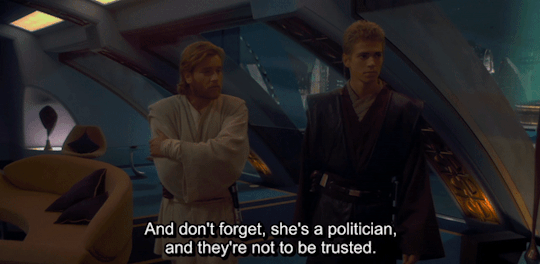
"[This scene gives us] a chance to talk a little bit about politics and the Jedi’s disenchantment with the political process, due to the corruption and the ineffectiveness of the Senate."
- Attack of the Clones, Director’s Commentary, 2002
Considering all this, it becomes clear that the intended narrative surrounding Dooku's decision to leave the Order is not:
"The Jedi are dogmatic and asleep at the wheel except for Dooku, who is ahead of the curb and sees the system is flawed, so he left."
It's actually:
"ALL Jedi see the system is flawed, Dooku's the only Jedi who decided to take it a step further and leave the Order so he can try to get into politics himself and change things."
That's why they hesitate to accuse him of murder.
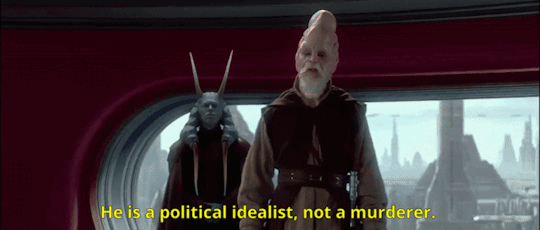
That's why in an earlier draft of the Attack of the Clones script, by the end of the second act, Mace STILL has his doubts that Dooku would sign a treaty with the Trade Federation to attack the Republic.

As far as the Jedi are concerned, Dooku is out there fighting the good fight, making noise because whenever they try to protest it falls on deaf ears... until his betrayal on Geonosis.
After all, let's not get it twisted: the Dooku we're introduced to in the films and The Clone Wars, isn't really just Dooku anymore.
He's Darth Tyranus.
A point Lucas makes sure to highlight in his Shatterpoint prologue:
"Unbeknownst to most of his followers, Dooku was himself a Dark Lord of the Sith, acting in collusion with his master, Darth Sidious, who, over the years, had struck an unholy alliance with the greater forces of commerce and their private droid armies."
It's not about doing the selfless thing for Dooku, anymore. He's knowingly part of the problem.
He's all about ambition, now. His personal goals are things like overthrowing Sidious and becoming the most powerful Jedi.
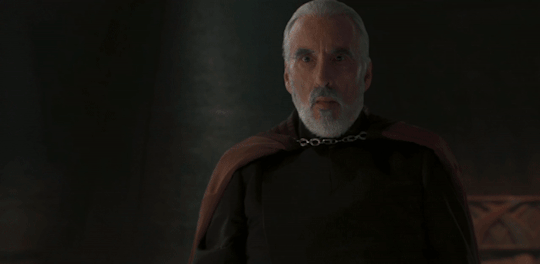
"[Anakin's] ambition and his dialogue here is the same as Dooku’s. He says “I will become more powerful than every Jedi.” And you’ll hear later on Dooku will say “I have become more powerful than any Jedi.” [...] It is possible for a Jedi to want to become more powerful, and control things."
- Attack of the Clones, Director’s Commentary, 2002
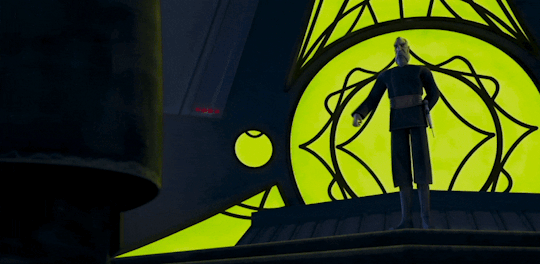
"If you put two Sith together, they try to get others to join them to get rid of the other Sith. [When revealing the truth to Obi-Wan], Dooku's ambition is really to get rid of Darth Sidious. He's trying to get Obi-Wan's assistance in that and help in that, so that he and Obi-Wan could overthrow Sidious and take over."
- Attack of the Clones, Commentary Track 2, 2002
Y'know? Selfish things.
Dooku - like all other Sith, and like the very corporations and Senators he had sworn to destroy - is consumed by his own greed.
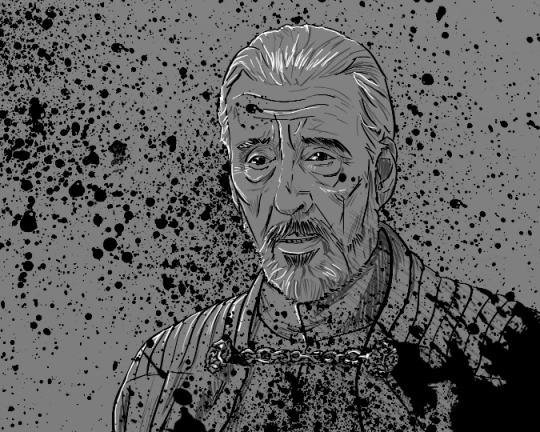
#also functionally-speaking Dooku being a Jedi is done to highlight the ambiguity throughout the investigation on whether or not this is#a scorned ex-Jedi or a straight-up bad guy... you're never sure until the end of AOTC. That and Dooku being a former Jedi shows that#even someone who was once selfless and dutiful can crave power and be selfish#which sets up a precedent for Anakin - who's already struggling with being a selfless Jedi - when HE falls to the Dark Side#Dooku being a former Jedi isn't a plot point meant to narratively criticise of the Order... it's meant to hint at Anakin's downfall.#dooku#george lucas#star wars#attack of the clones#long post#collection of quotes
2K notes
·
View notes